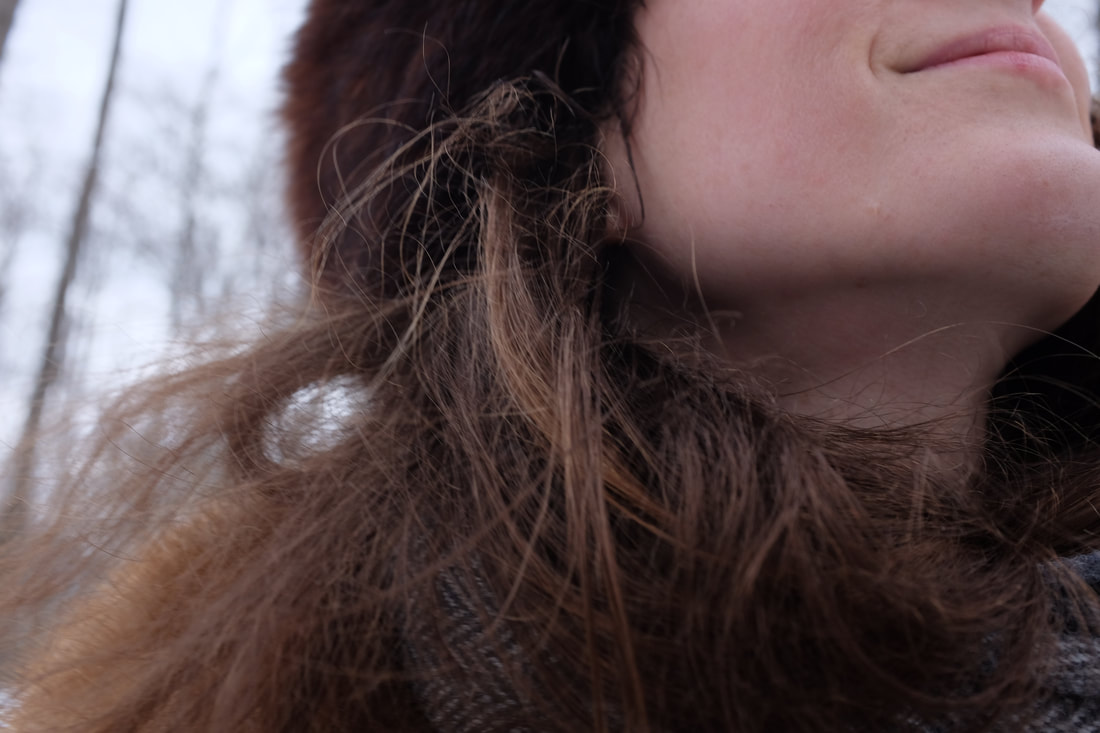|
Our bodies have an intelligence largely beyond our conscious awareness. This knowing extends to all levels of our physical form, from our senses and awareness of the world to internal sensations to the unconscious functioning of our organs, tissues, and cells.
Our senses are our connection to the outside world. They are always engaged, and often are far more aware of our surroundings than our conscious minds. When we see the slanting light of an autumn evening as we smell the brown, sun-warmed leaves of an oak underfoot, and hear the distant chant of flying geese overhead, it is not the conscious thought of “all these signs indicate to me that it is autumn and winter is coming,” but rather an embodied feeling, a visceral knowing of time and place, a nostalgia for future pasts. Or in late winter, as it is presently, when you wake to the warmer feeling sun through a window pane and the chirping of robins and cardinals, your chest fills with what could be intellectualized as Hope. It is yet again, as with the signs of fall, a feeling that is evoked by the senses. There may even be the synesthetic experience of smelling the scent of thawing earth, though the ground outside may still be frozen and blanketed in snow. It is such experiences that guide us, that give context, meaning, and rhythm to our days, to our lives. All the while these bodily knowings go largely unnoticed by the conscious mind. We have other ways in which our bodies demonstrate their intelligence. When you wake in the night, parched, and walk to the kitchen to pour yourself a glass of water, it is by your sense of hearing alone that you know your cup is full. The steadily rising pitch of the water entering the glass. Your ear knows exactly which tone means the cup has reached its limit, while at that exact moment your hand holding the cups also perceives its precise weight. Or there is the cook who can “eyeball” all the spices in a recipe with wondrous precision. There is also the mechanic who may look at a single nut or bolt and know the exact size or threading without comparison or measurement. We all know of muscle memory, and the body’s ability to grow more knowledgeable of a task over time. We need not look to the skilled artisan or musician to see this. Anybody who drives, walks, rides a bike, eats with utensils, braids hair, has learned skills of the body beyond our conscious awareness. Like the knowing of the senses, muscle memory is a wit of the body. So too are our internal sensations. Interoception, our perception of internal sensation, gives us valuable insight into our emotional and physical wellbeing. We may feel our heart racing when we are anxious, and also feel an emotional tightness in our chest. We may say we have a “gut feeling” about something. This is the seat of intuition. Before our minds enter the conversation, we almost always know the right answer based on what our body is telling us to do. This is why we say things like “go with your gut” or “follow your heart.” The body will guide us if we let it. Our bodies also give us important, vital information about our physical health. We know that we ate something we should not have, because we feel discomfort in our gut. Our bodies tell us when we are thirsty, hungry, tired. They direct our behavior in this way. They almost always know what is best for us, and they will ask for it. All we have to do is listen. If we learn to listen to the subtle cues and guidance our bodies give us, we will be guided towards health. Take a moment to stop and ask, “What does my body need in this moment?” Try to do this without letting the conscious mind interfere. And try to treat your body with tenderness, love, and respect. Your body is an incredible vessel and companion with more wisdom and wit than we might imagine.
0 Comments
|
AuthorHerbalist, artist, woodland wanderer Archives
March 2021
Categories
All
|
Proudly powered by Weebly

 RSS Feed
RSS Feed